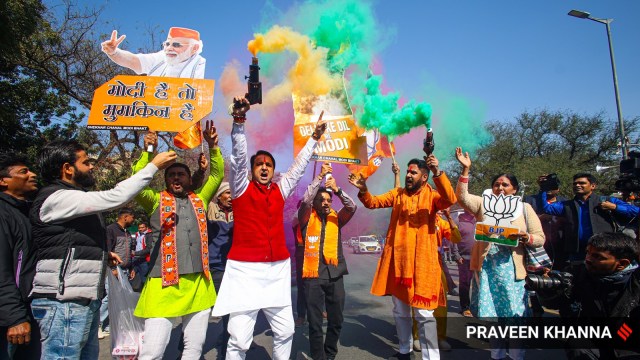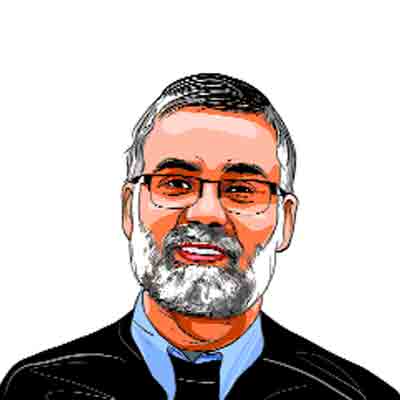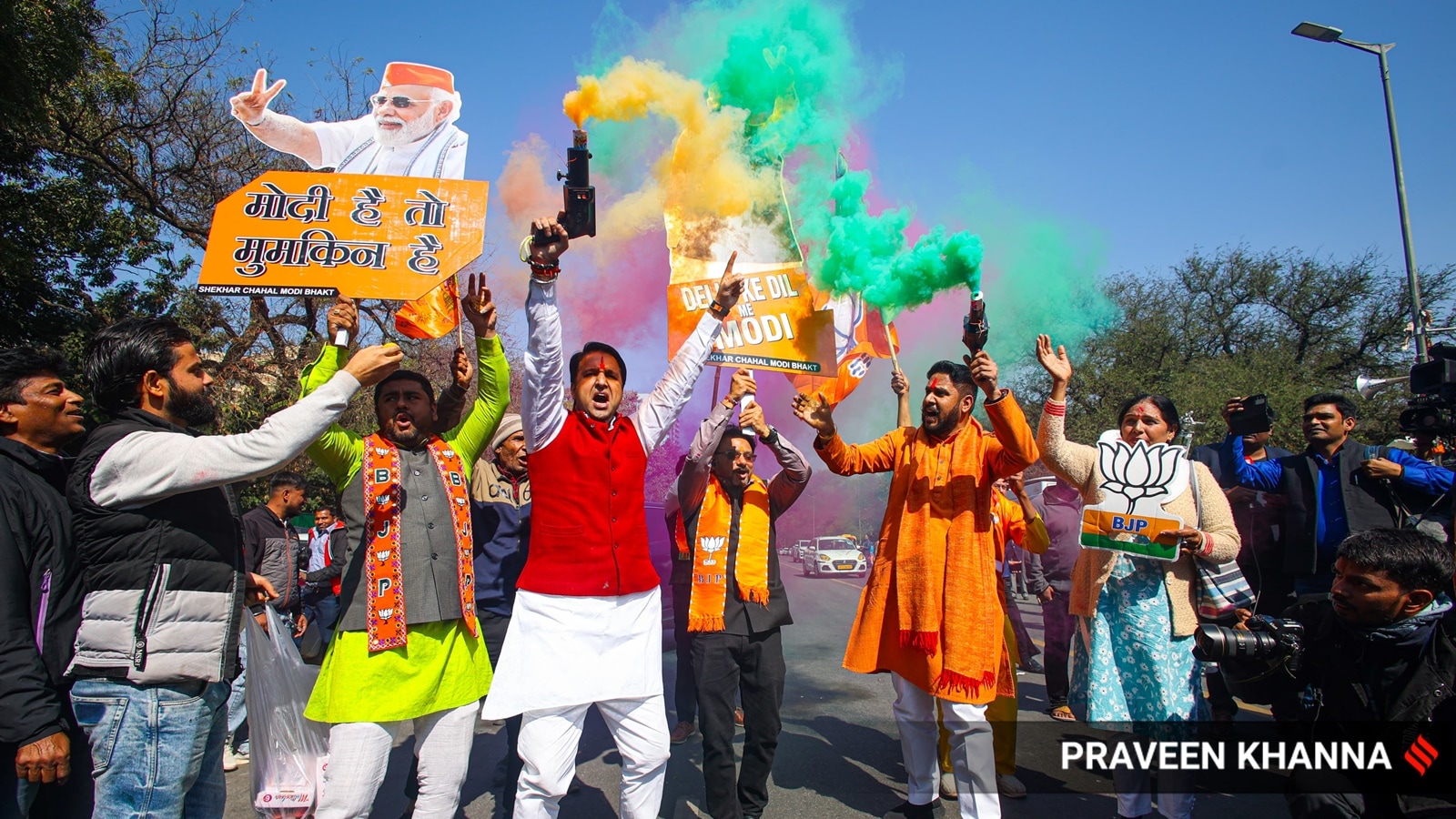

Feb 8, 2025 18:54 IST First published on: Feb 8, 2025 at 18:54 IST
The origin myth of the Aam Aadmi Party — its own imagination regarding its nature — is deeply entangled with four key ideas. First, that there is too much politics in the political life of the nation and that governance is best carried out by politicians who are against politics. Second, in order for this to happen, Indian politics requires political outsiders — those who are not career politicians — to both enter politics but also outsiders through rejecting established ways of doing politics. Third, politicians must be modest in their lifestyle in order to prove that they have entered public life to serve the people rather than for self-enrichment. And, fourth, that the voting public subscribes to all of the above.
Over the past decade, a variety of neutral observers of Delhi’s infrastructural life have pointed to marked improvements in the capacity of its most deprived residents to access resources for a better quality of life. Under AAP, government schools made impressive strides in providing measurably improved education and Mohalla Clinics appeared to make an admirable contribution towards the making of better healthcare facilities. Beyond the socio-economically marginalised, AAP also found some success in addressing a crucial — and chronic — Delhi complaint: The constantly erratic electricity situation. AAP did indeed seem to be moving beyond politics, doing the things that are expected of good administrators.
Story continues below this ad
Over the past decade, AAP’s leadership seemed to be fulfilling its self-ascribed role of political outsiders who, being disdainful of the corrupt and self-serving ways of professional politicians, re-engineered governance away from politics and towards the nuts and bolts of improving the lives of citizens. The original appeal of the party, linked to the heady days of the Anna Hazare linked anti-corruption movement that brought down Delhi’s Congress government, became a shared belief system between it and political commentators. The electoral calamity encountered by the Aam Aadmi Party in the 2025 Delhi elections should tell us something about the mythmaking about voters and their beliefs regarding politics and politicians.
In his own seat of New Delhi, Arvind Kejriwal lost not just to a professional politician, but the son of an archetypal professional politician. The winner, Parvesh Verma, has been both a member of Delhi’s legislative assembly and a two-time member of parliament. His father, Sahib Singh Verma was, of course, the chief minister of Delhi for two-and-a-half years in the mid-1990s. Do people dislike professional politicians and prefer their rulers to be, say, technocrats and those with management degrees? Mostly not.
Our relationship with public figures is far messier than that frequently assumed. It is not as open to ideas about rational behaviour — surely improved government schools and better health facilities should mean electoral success for AAP — as is frequently analysed. Our relationship to public figures is an affective one that consists of a variety of sensations that go beyond a simple cause-and-effect relationship. The fact that BJP’s Mohan Singh Bisht should win from the Muslim-dominated Mustafabad constituency — affected by the riots of 2020 — should caution us against accepting simplistic ideas regarding the peoples’ desire to elect “anti-politicians”.
Story continues below this ad
The myth of the political outsider as a figure deeply wished for by the electorate has also not served the ends desired by Arvind Kejriwal and those around him. It has, just as significantly, also laid to waste certain strands of thinking about Indian politics. Apparent political outsiders, such as Arvind Kejriwal and Manish Sisodia, find themselves comprehensively outdone by the masters of the political inside: BJP’s strategy thinktank. The idea of the outsider storming a long-established citadel called politics derives both from folk tales about mythical heroic figures as well as modern re-fashioning of folk tales where those with super-human attributes fly through sky and climb skyscrapers to rescue hapless citizens from dire situations. There is little or no proof whatsoever that it is the political outsider that is a preferred figure in Indian political life. For a society so deeply enmeshed in kinship, caste, religious and family networks — networks of insiders — it would be very remarkable indeed if outsiders became admired figures in the realm of politics. For that would mean that Indian politics is completely unconnected to Indian society, a logical impossibility.
most read
Do we really expect our politicians to have ascetic and modest lifestyles that also serve as a marker to their devotion to public life and disdain for the grasping ways of professional politicians? Both the BJP and neutral commentators might suggest that voters were turned off by the controversy over the luxurious refurbishment of the Chief Minister’s residence and that this significantly affected Kejriwal’s reputation; that is not what we expect of our politicians. However, over the past three decades, Indian society has been firmly in the grip of a culture of aspirations where conspicuous consumption is not considered a bad thing at all. Indeed, it is greatly admired and marks a significant turn away from both Gandhian asceticism and Nehruvian socialism as models of private and public life. The election result should force us to think about the nature of the Indian voter now, rather than seek to apply ideas of an entirely different age to a very different present.
Finally, what the BJP has managed to do is invent an entirely new “aam admi” through carefully putting forward the idea that the “ordinary person” is, in fact, not the one who may be socially and economically marginalised. Instead, the ordinary citizen is the one who has been marginalised by earlier political dispensations. This “ordinary” Delhi resident is a middle-class citizen. And that it is middle-classness that can serve as a criticism of earlier forms of politics. It is middle-classness that can recognise a purer form of politics. It is this newly-minted heroic figure that a large number of voters aspire to and happily support professional politicians and political insiders who promise to deliver on the new aspirations of middle-classness.
The writer is Distinguished Research Professor, SOAS University of London


